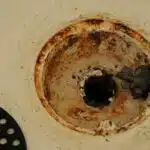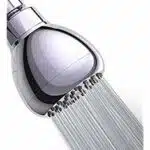As a plumbing expert, one of the most common complaints I hear from homeowners is about an unpleasant odor emanating from their shower drain. The smell of rotten eggs can be both nauseating and concerning, raising questions about potential health hazards and the need for costly repairs. In this article, I will explore the reasons why your shower drain may smell like rotten eggs and provide practical tips on how to address this issue.
The smell of rotten eggs is often caused by the presence of hydrogen sulfide gas in your plumbing system. This gas is produced when organic matter breaks down in stagnant water or sewer systems, leading to a buildup of bacteria that release sulfur compounds into the air. If you notice this odor only coming from your shower drain, it is likely due to a lack of ventilation or poor water flow in your pipes, which allows these gases to accumulate and emit through your shower drain. Understanding the underlying causes of this problem can help you prevent further issues and ensure that you enjoy a fresh, clean-smelling bathroom once again.
Understanding Hydrogen Sulfide Gas
Hydrogen sulfide gas is a colorless, flammable gas with a strong odor that resembles rotten eggs. It is formed naturally by the decomposition of organic matter in the absence of oxygen, such as in swamps and sewers. Hydrogen sulfide is also produced by industrial processes, including oil refining, paper manufacturing, and tanneries.
Chemical properties of hydrogen sulfide make it a significant safety hazard. It is highly toxic and can cause death at high concentrations. Exposure to low levels of hydrogen sulfide can cause irritation of the eyes, nose, throat, and respiratory system. Prolonged exposure can lead to headaches, nausea, dizziness, and even unconsciousness.
Due to its health hazards and unpleasant odor, hydrogen sulfide is regulated by various government agencies around the world. In the United States, for example, the Occupational Safety and Health Administration (OSHA) has established permissible exposure limits for workers who may be exposed to hydrogen sulfide in their work environments.
The Science Behind Shower Drain Odors
As we have learned in the previous section, hydrogen sulfide gas is a common culprit of unpleasant odors. In the context of shower drains, these smells may often resemble that of rotten eggs. However, there are other sources that can lead to this type of odor.
Shower drain odor sources can vary depending on several factors including the age and condition of the plumbing system, as well as usage patterns. Some common causes may include:
- Accumulated hair and soap scum
- Buildup of organic matter in pipes
- Mold or mildew growth
Chemical reactions causing drain smells occur when bacteria breaks down organic matter in warm and moist environments such as shower drains. This process produces hydrogen sulfide gas which is responsible for the foul odor.
Identifying the source of the smell is crucial for determining an appropriate solution. In the next section, we will delve into different methods for identifying and addressing shower drain odors.
Identifying The Source Of The Smell
As a plumbing expert, identifying the source of the smell in your shower drain is essential. While it may be tempting to simply mask the odor with air fresheners or deodorizers, this will only provide a temporary solution. Instead, it is crucial to determine what is causing the smell so that you can take steps to prevent it from happening again.
One effective way to identify the source of the smell is by conducting a simple test. Fill your shower drain with water and then wait for a few minutes. If you notice that the water has drained slowly or not at all, this may be an indication that there is a clog in your drain. Additionally, if you detect foul odors emanating from your sink or toilet as well, this could point towards an issue with your septic system.
Once you have identified the source of the smell in your shower drain, it’s time to take action to prevent it from recurring. One common cause of odor in shower drains is buildup and deposits within pipes. Regular cleaning using natural solutions such as vinegar and baking soda can help prevent these deposits from accumulating over time. You should also avoid pouring fats, oils, and grease down your drain as these can lead to blockages and unpleasant odors.
| Causes of Odor | Prevention Tips |
|---|---|
| Buildup and deposits within pipes | Regular cleaning using natural solutions such as vinegar and baking soda |
| Fats, oils, and grease poured down drains | Avoid pouring these substances down your drain |
| Clogs in drains | Use a plunger or professional drain cleaning service |
In conclusion, identifying the source of foul smells coming from your shower drain is crucial for preventing future occurrences. By conducting simple tests like filling up your shower drain with water, you can quickly determine if there are any underlying issues such as clogs or problems with your septic system. Once you have identified the cause of the smell, take proactive steps to prevent it from happening again by regularly cleaning your pipes and avoiding pouring substances like fats, oils, and grease down your drain. In the next section, we will explore common causes of rotten egg smells in shower drains.
Common Causes Of Rotten Egg Smells In Shower Drains
- Sulfur bacteria is one of the most common causes of a rotten egg smell in shower drains.
- This bacteria is anaerobic, which means it thrives in an environment with little or no oxygen.
- Clogged drains can also contribute to the development of a rotten egg smell in shower drains.
- This is because the clog can form a warm, moist environment that is ideal for the growth of sulfur bacteria.
- The P-trap in a shower drain can also be a source of the smell if it is not properly maintained.
- Debris can accumulate in the P-trap and create an environment that is conducive to the growth of sulfur bacteria, leading to a rotten egg smell.
Sulfur Bacteria
As a plumbing expert, it is not uncommon for me to receive calls from concerned homeowners reporting a foul-smelling odor emanating from their shower drains. One of the most common causes of this unpleasant smell is sulfur bacteria. This type of bacteria thrives in environments with low oxygen levels and feeds on organic matter, such as hair or soap scum, that accumulates in shower drains over time.
While sulfur bacteria are not generally harmful to human health, they can release hydrogen sulfide gas, which has a distinct rotten egg odor and can be irritating to the eyes and respiratory system. In some cases, exposure to hydrogen sulfide gas can lead to more serious health risks, such as headaches, dizziness, or nausea. Additionally, sulfur bacteria can have an environmental impact by contributing to the production of greenhouse gases that contribute to climate change.
To prevent sulfur bacteria from accumulating in your shower drain and causing foul odors, it is important to regularly clean your drain with a mixture of baking soda and vinegar or use specialized drain cleaning products. It may also be helpful to run hot water through your drain after each use to help flush away any organic matter that may have accumulated. By taking these simple steps, you can ensure that your shower remains clean and fresh-smelling while also reducing the risk of potential health concerns associated with sulfur bacteria exposure.
Clogged Drains
Another reason why homeowners may experience foul-smelling odors coming from their shower drains is due to clogs. Clogs are a common issue that homeowners encounter when it comes to plumbing problems. They can occur for various reasons, such as the accumulation of hair, soap scum, and other debris in the drain. When these materials accumulate over time, they can prevent water from flowing freely through the drain and cause backups and foul smells.
To prevent clogs from occurring in your shower drain, it is essential to regularly clean the drain using specialized products designed for this purpose. These products help break down any organic matter that may have accumulated in the drain and prevent clogs from forming. Additionally, it is advisable to avoid pouring grease or oil down your drains as they can solidify and cause blockages.
In conclusion, clogged shower drains are another potential cause of rotten egg smells emanating from shower drains. To avoid this issue, regular cleaning with specialized drain cleaning products is necessary. With proper maintenance and care, you can ensure that your shower remains free of unpleasant odors while also preventing potential health risks associated with exposure to harmful bacteria and gases.
P-Trap Debris
Another common cause of foul-smelling odors coming from shower drains is P-trap debris. The P-trap is a U-shaped pipe located beneath the drain that traps water and prevents sewer gases from entering your home. However, this trap can also accumulate debris such as hair, soap scum, and other organic matter over time. When these materials decompose, they produce hydrogen sulfide gas, which gives off a rotten egg smell.
To eliminate the odor caused by P-trap debris, it is essential to regularly clean the trap using specialized cleaning products. These products help break down any accumulated organic matter and prevent blockages that can cause unpleasant smells. You can also use odor elimination techniques such as pouring hot water or vinegar down the drain to flush out any remaining particles.
In addition to regular P-trap cleaning and odor elimination techniques, it is advisable to be mindful of what goes down your shower drain. Avoid pouring oils, fats, or grease down the drain as they solidify and contribute to clogs and unpleasant smells. By taking these simple steps, you can keep your shower smelling fresh while also preventing potential health hazards associated with exposure to harmful gases and bacteria.
Poor Ventilation
Proper ventilation is essential for maintaining a healthy and hygienic bathroom environment. When a shower drain emits a foul odor, it is an indication of poor ventilation. Bathrooms are naturally humid environments, and when moisture accumulates, it can lead to mold growth and unpleasant odors.
Humidity control is another critical factor that contributes to proper ventilation. Excessive humidity can lead to condensation on surfaces such as walls, floors, and fixtures. This condensation can cause water damage, create breeding grounds for bacteria and fungi, and create unpleasant odors. Installing proper ventilation systems such as exhaust fans can help remove excess moisture from the air.
In summary, proper ventilation and humidity control are crucial factors in keeping your bathroom clean and odor-free. These measures prevent mold growth, water damage, and eliminate unpleasant smells. By installing adequate ventilation systems such as exhaust fans or opening windows during showers, you can maintain a healthy bathroom environment for yourself and your family.
Transition into subsequent section: While proper ventilation plays an essential role in preventing foul odors in your shower drain, clogged drains can also contribute to bad smells. Therefore, it is crucial to address the issue of clogged drains promptly to maintain a clean and hygienic bathroom environment.
Clogged Drain
Poor ventilation can cause unpleasant odors in your bathroom, especially if there is no way for the air to circulate. It is essential to ensure that your bathroom has proper ventilation, including an exhaust fan and open windows. When the air becomes stagnant, it can trap moisture and bacteria, leading to a foul smell.
However, if you have good ventilation in your bathroom, but the smell persists, it could be due to a clogged drain. Over time, hair and soap scum can build up in your shower drain and create a blockage. This blockage can cause water to back up into the shower pan and lead to an unpleasant odor. To remedy this issue, you may need professional plumbing services or use cleaning products specifically designed for unclogging drains.
If neither poor ventilation nor a clogged drain seems to be causing the smell from your shower drain, it could be due to biofilm buildup. Biofilm is a collection of microorganisms that stick together on surfaces like pipes and drains. Over time, these microorganisms can produce hydrogen sulfide gas which smells like rotten eggs. To remove biofilm buildup from your shower drain and prevent future growth, consider using specialized cleaning products or contacting professional plumbing services for assistance.
Biofilm Buildup
Biofilm Buildup:
The unpleasant smell emanating from your shower drain can be attributed to the buildup of biofilm. Biofilm is a slimy layer of bacteria that forms when microorganisms stick to surfaces and secrete a protective coating around themselves. The bacterial growth in your shower drain could be due to a variety of factors, including stagnant water, soap residue, and hair.
Biofilm buildup in your shower drain can lead to blockages and unpleasant odors. To prevent this from happening, it is important to remove the biofilm regularly. One effective way of doing this is by using natural cleaners such as vinegar or baking soda. These cleaners are environmentally friendly and safe for use in your plumbing system.
To remove biofilm buildup from your shower drain, you can try pouring a cup of vinegar down the drain followed by hot water after 30 minutes. Alternatively, you can sprinkle baking soda down the drain followed by hot water after 10 minutes. This will help dissolve any build-up and eliminate any unpleasant odors coming from your shower drain.
- Three items that may contribute to biofilm buildup in showers:
- Stagnant water
- Soap residue
- Hair
In conclusion, biofilm buildup in your shower drain is a common problem that can be avoided through regular cleaning with natural cleaners such as vinegar or baking soda. By removing biofilm regularly, you will prevent blockages and eliminate any unpleasant odors coming from your shower drain. In the next section, we will discuss how damaged or corroded pipes may also contribute to foul smells coming from your plumbing system.
Damaged Or Corroded Pipes
One possible explanation for a shower drain emitting a rotten egg smell is the presence of damaged or corroded pipes. When pipes are damaged, they can crack or break, allowing sewer gases to seep into the home’s plumbing system. Similarly, when pipes corrode, they can become weakened and susceptible to leaks, which again allows the release of unpleasant odors.
To determine if damaged or corroded pipes are causing the problem with your shower drain, a plumbing inspection is necessary. A professional plumber will be able to assess the condition of your home’s pipes and determine if any need replacement. If damaged or corroded pipes are found to be the cause of the foul odor in your shower drain, pipe replacement may be necessary.
While pipe replacement may seem like a daunting and expensive task, it is essential for maintaining a healthy and safe living environment. Ignoring damaged or corroded pipes can lead to more significant problems down the road that may require more extensive repairs. It is always best to address these issues as soon as possible to prevent further damage and expense.
Transitioning into fixing the problem: DIY solutions – Now that we have discussed one potential cause of a rotten egg smell in your shower drain, it’s time to explore some DIY solutions for fixing this issue.
Fixing The Problem: Diy Solutions
Damaged or corroded pipes can cause a shower drain to emit a foul odor that smells like rotten eggs. If you have ruled out this possibility, it may be time to explore other causes and solutions. DIY solutions are available for those who want to tackle the issue themselves. However, it is important to weigh the pros and cons of natural versus chemical methods.
Natural solutions include using baking soda and vinegar or lemon juice, which can help break down any buildup in the drain. These options tend to be safer for the environment and your plumbing system compared to harsh chemicals. On the other hand, chemical solutions such as drain cleaners may provide quick results but can damage your pipes over time if used frequently.
When deciding between quick fixes versus long term solutions, consider how often the issue occurs. If it is a one-time occurrence, a quick fix may suffice. However, if the problem persists, it may require a more permanent solution such as replacing your shower drain or fixing any underlying plumbing issues.
In summary, DIY solutions are available for those dealing with a smelly shower drain. When attempting to fix the issue yourself, consider natural versus chemical options and weigh the benefits of quick fixes versus long term solutions. In the next section, we will discuss another simple yet effective method for flushing out your shower drain with hot water.
Flushing The Drain With Hot Water
When it comes to eliminating the foul smell from your shower drain, flushing it with hot water can be a simple yet effective solution. The benefits of using hot water are manifold. Firstly, hot water helps in melting the grease and oils that have accumulated inside the pipes, making them easier to flush out. Secondly, it dissolves soap scum and other residues that contribute to clogging and bad odors.
However, before you start flushing your drain with hot water, there are some precautions you must take. Never use boiling water as it can damage plastic pipes or joints in older plumbing systems. Instead, use very hot tap water that is safe for your pipes. Also, make sure to run cold water for a few seconds before and after pouring hot water into the drain to avoid any damage due to sudden temperature changes.
In conclusion, flushing your shower drain with hot water is a quick and easy way to get rid of unpleasant odors caused by accumulated debris in the pipes. But remember to follow precautions while doing so and use caution when dealing with hot liquids. In the next section, we will discuss another effective method for cleaning your shower drain using baking soda and vinegar treatment.
Baking Soda And Vinegar Treatment
Baking Soda and Vinegar Treatment is a popular method for cleaning shower drains that smell like rotten eggs. This treatment is cost-effective and easy to perform, making it a go-to solution for many homeowners. The process involves mixing baking soda and vinegar, which creates a chemical reaction that dissolves the buildup of organic matter in the pipes.
Benefits of Baking Soda and Vinegar Treatment include its ability to eliminate bad odors from shower drains efficiently. The treatment is also an eco-friendly alternative to harsh chemical cleaners commonly used for drain cleaning. Moreover, this method can be performed at any time without requiring professional assistance.
It is recommended to perform Baking Soda and Vinegar Treatment once every month to prevent foul smells from building up in the future. However, if you notice recurring smells, it may be necessary to perform this treatment more frequently.
Alternatives to Baking Soda and Vinegar Treatment include other natural remedies such as lemon juice or saltwater treatments. Professional drain cleaning services are also available for severe cases where home remedies do not work effectively. However, these alternatives can be costly and may not provide the same eco-friendliness as Baking Soda and Vinegar Treatment.
In preparation for the next section about hydrogen peroxide solution, it is essential to note that this method can also be used as an alternative remedy for removing bad odors from shower drains. While similar in effectiveness to Baking Soda and Vinegar Treatment, hydrogen peroxide solution requires different steps in application.
Hydrogen Peroxide Solution
If your shower drain smells like rotten eggs, it is likely due to the presence of hydrogen sulfide gas. This gas is produced by bacteria that thrive in warm and damp environments such as shower drains. One effective way to eliminate this odor is by using a hydrogen peroxide solution.
Hydrogen peroxide is an oxidizing agent that can break down the organic matter and bacteria causing the foul smell. To use this remedy, mix equal parts of 3% hydrogen peroxide and water in a container. Then, pour the solution down the shower drain and let it sit for about an hour before rinsing with hot water. This homemade remedy can be used regularly to prevent the return of unpleasant odors.
While this solution is generally safe to use, there are safety precautions that you should take. Always wear protective gloves when handling hydrogen peroxide as it can irritate your skin and eyes. Additionally, do not mix hydrogen peroxide with other chemicals as this can create harmful reactions. With these precautions in mind, you can safely use this solution to get rid of any unpleasant odors coming from your shower drain.
In addition to homemade remedies, if you still notice persistent foul smells even after trying various solutions, consider calling in the professionals for assistance. They have specialized equipment and tools that can help identify underlying issues that may require more extensive repairs or cleaning methods than what you can do yourself at home.
Calling In The Professionals
To address the issue of a shower drain smelling like rotten eggs, homeowners may consider different options for resolving the problem. One possible solution is to attempt a do-it-yourself (DIY) fix. DIY solutions can be cheaper than hiring a professional and may involve simple steps such as pouring hot water down the drain or using baking soda and vinegar. However, these methods may not always be effective, particularly if the underlying cause of the odor is more complex.
In some cases, it may be necessary to call in plumbing professionals to diagnose and resolve the issue. Plumbers have specialized equipment and expertise that can help identify hidden problems such as clogs or leaks in pipes. While professional solutions may come with a higher price tag than DIY fixes, they often save time and effort in the long run by preventing future issues from arising.
When comparing costs for fixing shower drain odor, it is important to consider both short-term and long-term expenses. DIY solutions may appear cheaper initially but could end up costing more if they fail to fully address the problem and lead to further damage down the line. On the other hand, professional services may seem more expensive upfront but can provide a lasting solution that saves money on future repairs or replacements.
To prevent future odors from occurring, homeowners should take proactive steps such as regularly cleaning drains and avoiding flushing harmful substances down them. Proper ventilation in bathrooms can also help reduce moisture buildup that contributes to unpleasant smells. By taking preventative measures and considering all options when addressing shower drain odor, homeowners can ensure a clean and fresh-smelling bathroom environment.
Preventing Future Odors
To prevent future odors in your shower drain, there are several steps you can take. First and foremost, regular cleaning is essential. Soap scum, hair, and other debris can accumulate in your drain and cause unpleasant smells. You should clean your shower drain at least once a week to prevent buildup.
Another way to prevent odors is by using drain covers. These covers catch hair and other debris before it enters the drain, reducing the amount of buildup that occurs. They are easy to install and come in a variety of sizes to fit different drains.
Finally, it’s important to be mindful of what goes down your drain. Avoid pouring grease or oil down the drain as they can solidify and cause blockages. Additionally, avoid flushing anything other than toilet paper down the toilet as this too can cause blockages in your pipes.
Regular cleaning and using drain covers are just two ways to prevent future odors in your shower drain. By being mindful of what goes down the drain, you can keep your plumbing system running smoothly for years to come. In the next section, we will provide some tips for regular maintenance of your drains to further reduce the likelihood of any issues occurring in the future.
Regular Drain Maintenance Tips
Proper and regular drain maintenance is crucial to avoid unpleasant smells emanating from your shower drain. Over time, hair, soap scum, and other debris can accumulate in the pipes, leading to clogs and stagnant water that produces a sulfurous odor reminiscent of rotten eggs. Neglecting to perform routine cleaning can cause significant damage to your plumbing system, leading to costly repairs.
One way to maintain your drains is through DIY drain cleaning methods. This process involves removing visible debris from the surface of your drain regularly. You can use a plunger or a plumbing snake to clear out any blockages in the pipes. Additionally, you can pour hot water mixed with vinegar or baking soda down the drain once every month to dissolve any buildup on the walls of your pipes.
While DIY methods are useful for minor clogs, it’s essential to have professional drain maintenance periodically. Professional plumbers have specialized tools that allow them to detect hidden blockages in the pipes and remove them effectively without causing further damage. They also have access to high-pressure water jets that blast away stubborn buildups without using harmful chemicals that could corrode your pipes over time.
In summary, maintaining your shower drains is vital in preventing unpleasant odors such as rotten eggs. Incorporating regular DIY cleaning methods such as plunging or pouring hot water mixed with vinegar down the drain helps keep your plumbing system running efficiently. However, professional drain maintenance is necessary when dealing with severe clogs and persistent odors that require specialized equipment only available through professional plumbers’ services.
Conclusion
Hydrogen sulfide gas is the culprit behind that unpleasant rotten egg smell coming from your shower drain. This gas is produced by bacteria breaking down organic matter in the drain, and it can be harmful to your health if inhaled in large amounts. Identifying the source of the odor is essential for preventing further problems.
Poor ventilation and buildup of debris are common causes of this issue. Using a hydrogen peroxide solution and calling in professional plumbers can help eliminate the odor. It is also important to regularly maintain your drain to prevent future problems.
In conclusion, as plumbing experts, we understand how frustrating it can be to deal with a smelly shower drain. By understanding the science behind these odors, identifying their source, and taking preventative measures, you can eliminate this problem and ensure the safety of your home’s plumbing system. Don’t let hydrogen sulfide gas linger in your bathroom- take action today! Remember: prevention is key when it comes to maintaining a healthy and odor-free plumbing system.
Image Credits
- “Hubble sniffs out a brilliant star death in a “rotten egg” nebula” by NASA Goddard Photo and Video (featured)




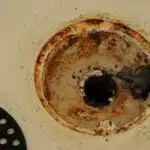
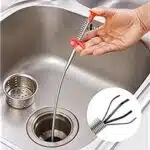

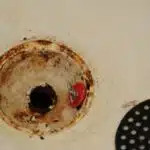
![How To Get Hair Out Of A Bathtub Drain 8 2/365 [Bathtub Drain]](https://green-life.blog/wp-content/uploads/2023/05/cOEu5edpkejq-150x150.jpg.webp)
